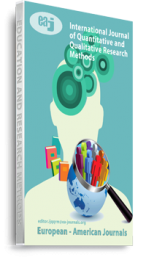Examination malpractices have become a recurrent decimal in higher institutions in Nigeria. Misconducts in examinations tend to have a connection with corrupt practices involving students in these institutions as it provides opportunities for them to get an education by fraudulent means. That questions the validity and credibility of the grades they earn in academics and reflects in their overall performances in the labour market. Based on the Bandura’s social cognitive learning theory, an ex-post facto was conducted to inquire about the correlation between examination malpractices and corruption among students in Cross River University of Technology (CRUTECH), Calabar, Nigeria. Three research questions and null hypotheses were developed for the study. 800 participants were randomly recruited from the population within the research site. Data was analyzed via Pearson product moment correlation coefficient statistic. The findings indicated that cheating, gratification and bribery have significant relationships with corruption among students at CRUTECH. Simply put, these are among the practices students employed to commit examination fraud. It is recommended that key stakeholders, inter alia, need to develop holistic and workable methods to curb the menace in the interest of national development.
Keywords: : examination malpractice, Corruption, Higher Institutions, Students

